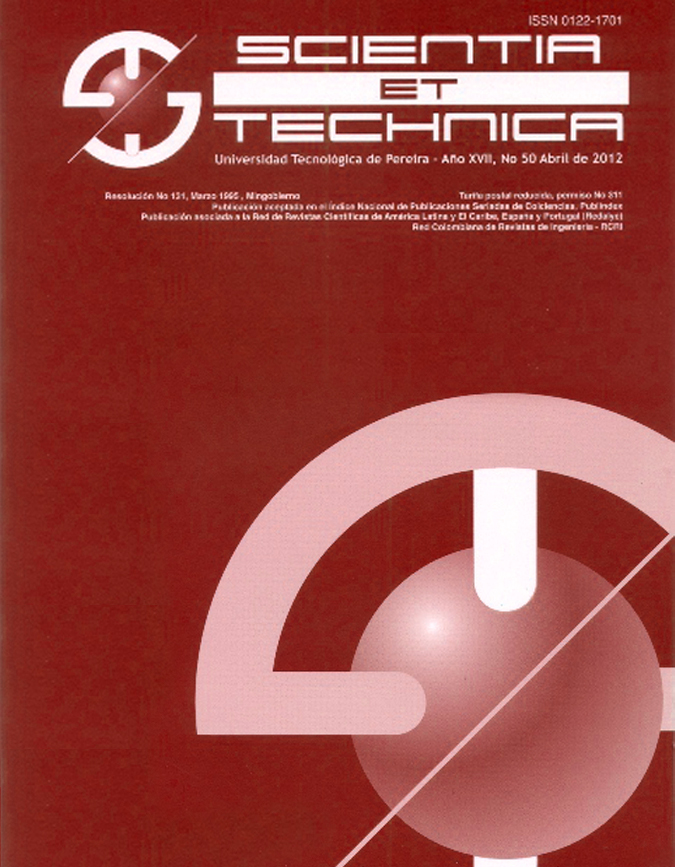Particularities of the output performance parameters of an engine-generator set fueled with LPG of high butane
DOI:
https://doi.org/10.22517/23447214.17871Palabras clave:
Engine-generator, engine performance, liquefied petroleum gas, LPG, Tests.Resumen
The objective of this paper is to disclose the results of a field test protocol planned and implemented to evaluate the performance behavior of a 1200 kW engine-generator, originally operated with natural gas, converted to liquefied petroleum gas (LPG) from Cusiana oil wells in Colombia. The peculiarity of the liquefied petroleum gas from Cusiana, a byproduct in the drying process of the natural gas, is its high butane content (above 30%). For the assessment of the LPG fuel on the performance of the engine-generator set, it was coupled a resistive load bank, and instrumented for low and high speed data, and emissions. It was designed an experimental procedure that combines starting, steady state, and transient loads. The analysis focuses mainly on the quantitative and qualitative analysis of the quality of the energy generated the fuel consumption, and the developed power. In general, the engine-generator has operated normally with Cusiana LPG fuel in the state of enlistment in which it was tested, maintaining satisfactory thermal regimes. It has delivered power in a stable manner under the conditions of load according to the forecasts of its owners, although much lower than the nominal rated power advertised for natural gas. The acceleration, velocity and displacement vibration values do not exceed the limit values given by the ISO 8528-9. The operation of the engine was safe, and at no point of operation detonation was detected for the loads.Descargas
Citas
Ecopetrol, “Consultancy to Determine the Schemes for Use of Derived Liquid Petroleum Gas Surplus for Electricity Generation in Oil Fields”, Tech. Rep, april
, 2013, Bogotá.
M. Masi. “Experimental analysis on a spark ignition petrol engine fuelled with LPG (liquefied petroleum gas)”, Energy 41, 2012, pp. 252-260.
J.E. Arango, F.E. Sierra and V. Silva. “Análisis exploratorio de investigaciones sobre los motores de combustión interna que trabajan con biogas”, Tecnura,
vol 18, no 39, 2014, pp. 152-164.
M.Y. Sulaiman, M.R. Ayob, and I. Meran. “Performance of Single Cylinder Spark Ignition Engine Fueled by LPG”, Procedia Engineering 53, 2013, pp. 579 – 585.
C.A. Forero, J.E. Arango and F.E. Sierra. “Evaluación energética de un sistema de generación de 400 kWe en modo diesel-gas licuado de petróleo” Ingeniería
Mecánica, vol 19, no 3, 2014.
D. Kalra, V. Babu , M. Vijay. “Effects of LPG on the performance and emission characteristics of SI engine - An Overview”, International Journal of Emerging
Technology and Advanced Engineering, vol 2, Issue 3, 2014.
Reciprocating internal combustion engines - Exhaust emission measurement, International Organization for Standarization - ISO 8178:2002, 2002.
Internal combustion engines – Determination and method for the measurement of engine power -- General requirements, International Organization for Standarization - ISO 15550:2002, 2002.
Reciprocating internal combustion engine driven alternating current generating sets - Part 1: Application, ratings and performance, International Organization for
Standarization - ISO 8528:2005, 2005.
Reciprocating internal combustion engine s– Performance, International Organization for Standarization - ISO 3046:2002, 2002.
R16V300 Gas Engine Operation & Maintenance Manual, 2010.
Cummins Westport. Cummins Westport fuel quality calculator, http://www.cumminswestport.com/fuelquality-calculator.
Liquefied petroleum gas code, National Fire Protection Association, NFPA 58:2011, 2011. Disponible en: https://www.nfpa.org/Assets/files/AboutTheCodes/58/FI 58-2011.pdf
H.E., Saleh. “Effect of variation in LPG composition on emissions and performance in a dual fuel diesel engine”. Fuel, vol 87, Issues 13–14, 2008, pp. 3031 - 3039. DOI: 10.1016/j.fuel.2008.04.007.
M.P. Poonia, A. Ramesh, R.R. Gaur. “Experimental investigation of the factors affecting the performance of a LPG-Diesel dual fuel mode”, SAE Technical Paper
-01-1123, 1999. DOI: 10.4271/1999-01-1123.
C. S. Mistry, C.K. Pithawalla. “Comparative Assessment on Performance of Multi cylinder Engine Using CNG, LPG and Petrol as a Fuel”. SAE Technical Paper 2005- 01-1056, 2005.
Descargas
-
Vistas(Views): 560
- PDF Descargas(Downloads): 519
Publicado
Cómo citar
Número
Sección
Licencia
Derechos de autor 2018 Scientia et technica

Esta obra está bajo una licencia internacional Creative Commons Atribución-NoComercial-CompartirIgual 4.0.
Derechos de autor y licencias
La revista es de acceso abierto gratuito y sus artículos se publican bajo la licencia Creative Commons Atribución/Reconocimiento-No Comercial-Compartir bajo los mismos términos 4.0 Internacional — CC BY-NC-SA 4.0.
Los autores de un artículo aceptado para publicación cederán la totalidad de los derechos patrimoniales a la Universidad Tecnológica de Pereira de manera gratuita, teniendo en cuenta lo siguiente: En caso de que el trabajo presentado sea aprobado para su publicación, los autores deben autorizar de manera ilimitada en el tiempo, a la revista para que pueda reproducirlo, editarlo, distribuirlo, exhibirlo y comunicarlo en cualquier lugar, ya sea por medios impresos, electrónicos, bases de datos, repositorios, discos ópticos, Internet o cualquier otro medio requerido.
Los cedentes mediante contrato CESIÓN DE DERECHOS PATRIMONIALES declaran que todo el material que forma parte del artículo está totalmente libre de derechos de autor de terceros y, por lo tanto, se hacen responsables de cualquier litigio o reclamación relacionada o reclamación relacionada con derechos de propiedad intelectual, exonerando de toda responsabilidad a la Universidad Tecnológica de Pereira (entidad editora) y a su revista Scientia et Technica. De igual forma, los autores aceptan que el trabajo que se presenta sea distribuido en acceso abierto gratuito, resguardando los derechos de autor bajo la licencia Creative Commons Atribución/Reconocimiento-No Comercial- Compartir bajo los mismos términos 4.0 Internacional — CC BY-NC-SA 4.0.
https://creativecommons.org/licenses/by-nc-sa/4.0/
A los autores, la revista Scientia et Technica tiene la obligación de respetarle los derechos morales (artículo 30 de la Ley 23 de 1982 del Gobierno Colombiano) que se les debe reconocen a estos la paternidad de la obra, el derecho a la integridad y el derecho de divulgación. Estos no se pueden ceder ni renunciar.



